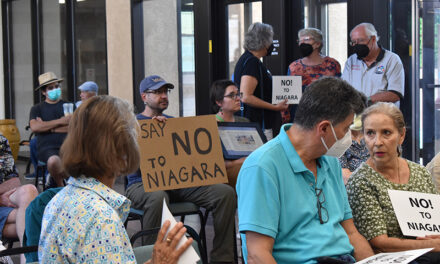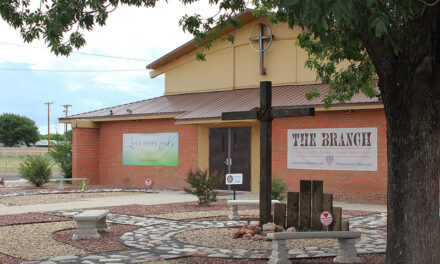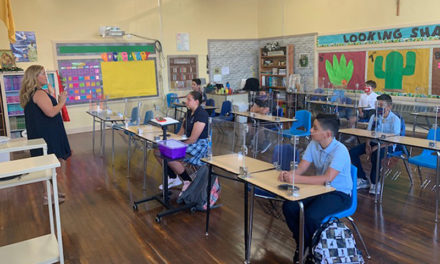A local nonprofit is asking for volunteers to be a voice for children who have experienced abuse and neglect.
Carrie Dalrymple, executive director for CASA Partners 4NMKids which serves Valencia and Sandoval counties, said the program is one of 13 in the state and 900 in the nation.
“The beauty of CASA is, in my opinion, that our advocates are all volunteers,” Dalrymple said. “They literally have no other agenda in that courtroom but to speak for the child and their best interests.”
A CASA — court appointed special advocate — is appointed by a judge to a case pertaining to the abuse or neglect of a child. That advocate then has the ability to speak to a wide range of people in the child’s life — from parents to teachers to therapists and foster parents — to learn about the child’s needs.
“The foster parents, biological parents and CYFD all have attorneys. There are all kinds of competing voices and sometimes CASA is the only one speaking for children,” she said.
The CASA program and its volunteer advocates are separate from CYFD, so there’s no conflict of interest, Dalrymple said. The advocate, after getting to know the child, writes a report to the judge, the executive director explained, which becomes part of the official documentation for the case.
“They are gathering as much information as they can, so they have a good working relationship with the judge, CYFD and everyone involved,” Dalrymple said. “They all have the same goal — keep kids safe.”
More often than not, the advocate only has one case assigned to them, unlike CYFD caseworkers, she said.
“(The CASA) has more time to get information and they share that with caseworkers. I’m happy to say we have good relationships with the CYFD offices in both the counties we work in. We share information. It’s best when it works that way.”
Volunteer advocates must be 21 years old, the executive director said, and there’s no minimum education requirements. Volunteers receive 30 hours of training before they are assigned to a case, and must do 12 hours of continuing education training each year they are with the program.
They also have to pass two background checks, Dalrymple said — a general check and a specific review by CYFD that looks for prior molestation and abuse incidents.
“All of our board, staff and volunteers go through both checks,” she said.
While being an advocate means the volunteers can speak to a wide range of people involved with the case, the identity of the child and details of the case are strictly confidential, Dalrymple said.
“Only people who are sworn in to the case by the court are allowed to know the details,” she said.
During the case, advocates work to build a rapport with the children, “especially the ones who are old enough to be wary,” Dalrymple said. “When they find out they’re volunteers and not CYFD, they are more likely to share with us.
“I think it’s critical for kids in care. I’m biased I’m sure but I don’t think there is more important work we could be doing. It’s not just about getting the outcome we think we should get. It’s creating a relationship, being a stable influence in a child’s life, being a safe person for them. We have had times when even after the case is closed, the CASA and child become lifelong friends.”
Dalrymple said nationwide the program has seen better outcomes for children in cases where a CASA was assigned, including quicker resolution of the case and a reduction in children going back into care.
“We need people who have heart and who can be dependable,” she said. “These kids have already had a lot of adults in their life who are not dependable.”
CASA volunteers are asked to be ready to commit at least a year to the program, she said, or for at least the duration of the case they’re assigned.
There is a greater need for volunteers in Valencia County compared to Sandoval, even though Sandoval County has a higher population.
“That’s a nationwide trend for rural areas — they tend to be high in poverty and low in services, so that puts more pressure on families, which results in more cases,” she said.
At the end of October, there were 55 open cases in Valencia County and 25 CASA volunteers.
“Right now, we can’t assign someone to every case. It’s heart wrenching to have to pick,” Dalrymple said. “Our goal is to have 100 percent case coverage. We really need volunteers.”
To learn more about being an advocate or to volunteer for the CASA program, visit casapartners4.org.
Julia M. Dendinger began working at the VCNB in 2006. She covers Valencia County government, Belen Consolidated Schools and the village of Bosque Farms. She is a member of the Society of Professional Journalists Rio Grande chapter’s board of directors.

















